Home / us-election / Ecuadorian President Daniel Noboa Appoints Interim Vice President Amid Ongoing Political Rift
Ecuadorian President Daniel Noboa Appoints Interim Vice President Amid Ongoing Political Rift
By: My India Times
5 minutes read 39Updated At: 2025-02-15
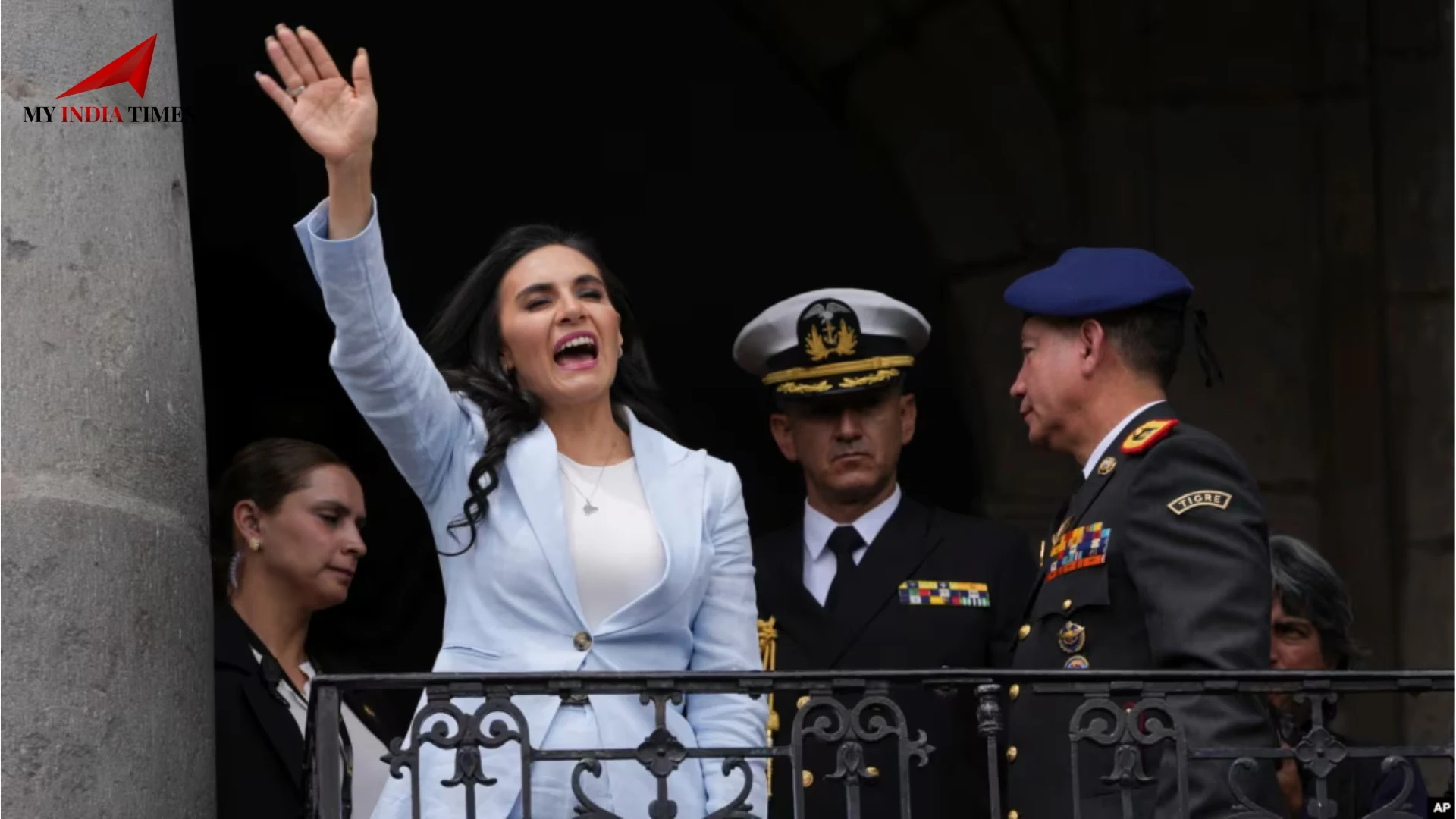
In a dramatic turn of events, Ecuadorian President Daniel Noboa has appointed an interim vice president amid a growing dispute with current Vice President Veronica Abad. The decision highlights deepening political tensions within the administration, just as the country prepares for the upcoming general elections.
The announcement was made by Government Minister José de la Gasca on Thursday, citing disciplinary infractions as the reason for Abad’s temporary replacement. Noboa has appointed Planning Minister Sariha Moya as the interim vice president, a move that further intensifies the ongoing power struggle within the government.
Government Cites “Extraordinary Circumstances” in Justifying the Change
According to de la Gasca, Abad’s actions amounted to “force majeure,” a legal term used to describe extraordinary and unavoidable circumstances that justify exceptional measures. The government maintains that her alleged defiance of presidential orders left Noboa with no choice but to appoint a temporary replacement.
Abad, who was also serving as Ecuador’s ambassador to Israel, reportedly refused an order to relocate to Turkiye amid security concerns related to the ongoing conflict in Gaza. Her refusal led the Ecuadorian Labour Ministry to suspend her from office in November.
Despite a court overturning her suspension in December, Noboa proceeded with the decision to assign Moya as interim vice president. Officials have stated that Moya will remain in the role until January 22 or until Abad assumes her diplomatic post in Turkiye.
Abad Denies Allegations as Political Rift Deepens
Veronica Abad has strongly denied any wrongdoing, framing the accusations as politically motivated. She and Noboa have had a tense relationship for months, with frequent public disagreements on policy and governance.
Observers believe the dispute is emblematic of broader political struggles within Ecuador’s leadership, with internal divisions complicating the president’s ability to govern effectively.
The timing of the controversy is particularly significant as Ecuador nears its general elections. With Noboa seeking re-election in February, the conflict with Abad risks undermining his administration’s stability.
Noboa’s Rise to Power: A Presidency Marked by Crisis and Challenge
Daniel Noboa, the youngest president in Ecuador’s modern history, came to power under extraordinary circumstances. His predecessor, Guillermo Lasso, invoked the unprecedented constitutional measure known as “muerte cruzada” or “crossed death,” dissolving the National Assembly and triggering an early presidential election.
Noboa, a businessman and heir to a banana industry fortune, won the October 2023 election with the promise of bringing stability to a nation grappling with economic uncertainty and rising crime. However, his administration has faced relentless challenges since taking office, from political turmoil to energy crises.
Energy Crisis Sparks Public Outrage
One of the most pressing issues Noboa has encountered is Ecuador’s worsening energy crisis. A severe drought has crippled the country’s hydroelectric power supply, leading to widespread blackouts.
Millions of residents have been affected by mandatory power cuts, which disrupted daily life and sparked frustration among the public. Many critics argue that Noboa’s government failed to implement effective contingency plans to address the worsening situation.
Ecuador’s Economy Struggles to Recover
Beyond the energy crisis, Ecuador’s economy remains fragile. The lingering impact of the COVID-19 pandemic has slowed economic recovery, with unemployment rates still high and inflation affecting the cost of living.
Many Ecuadorians are struggling to regain financial stability, and concerns over economic mismanagement have fueled protests and public dissatisfaction.
Escalating Crime and Security Concerns Put Noboa’s Leadership to the Test
Crime has emerged as one of Ecuador’s most alarming issues, with violent gangs expanding their operations throughout the country.
Once regarded as one of South America’s safest nations, Ecuador has experienced a surge in homicides, kidnappings, and drug-related violence. Criminal organizations have exploited the country’s coastal location to establish key smuggling routes, linking drug production centers in Colombia and Peru to global markets.
In response, Noboa has adopted a hardline approach to crime, empowering the police and military with greater authority to combat criminal networks. His administration has enacted strict security measures, including extended states of emergency and heightened military presence in high-crime areas.
Human Rights Concerns and Allegations of Military Abuse
Despite the government’s aggressive stance on crime, there have been growing concerns over alleged human rights violations. Critics argue that excessive use of military force has led to abuses of power, with reports of unjustified detentions and extrajudicial actions.
Tensions escalated further after the horrifying discovery of four burned bodies near a military base in Taura. Surveillance footage appears to show military personnel detaining the victims before their deaths. The incident has sparked nationwide outrage, with protesters demanding accountability and justice for the victims.
The government has vowed to investigate the case, but many Ecuadorians remain skeptical about whether the truth will come to light.
What Lies Ahead for Noboa and Ecuador?
With elections on the horizon and mounting crises threatening his leadership, President Daniel Noboa faces a defining moment in his political career. His ability to navigate the power struggle with Abad, address economic woes, and manage security concerns will determine his prospects for re-election.
As Ecuador stands at a crossroads, the coming weeks will be crucial in shaping the nation’s future. Noboa’s leadership will be tested like never before, and Ecuadorians will soon decide whether he remains the leader to guide them through these turbulent times.
....
In a dramatic turn of events, Ecuadorian President Daniel Noboa has appointed an interim vice president amid a growing dispute with current Vice President Veronica Abad. The decision highlights deepening political tensions within the administration, just as the country prepares for the upcoming general elections.
The announcement was made by Government Minister José de la Gasca on Thursday, citing disciplinary infractions as the reason for Abad’s temporary replacement. Noboa has appointed Planning Minister Sariha Moya as the interim vice president, a move that further intensifies the ongoing power struggle within the government.
Government Cites “Extraordinary Circumstances” in Justifying the Change
According to de la Gasca, Abad’s actions amounted to “force majeure,” a legal term used to describe extraordinary and unavoidable circumstances that justify exceptional measures. The government maintains that her alleged defiance of presidential orders left Noboa with no choice but to appoint a temporary replacement.
Abad, who was also serving as Ecuador’s ambassador to Israel, reportedly refused an order to relocate to Turkiye amid security concerns related to the ongoing conflict in Gaza. Her refusal led the Ecuadorian Labour Ministry to suspend her from office in November.
Despite a court overturning her suspension in December, Noboa proceeded with the decision to assign Moya as interim vice president. Officials have stated that Moya will remain in the role until January 22 or until Abad assumes her diplomatic post in Turkiye.
Abad Denies Allegations as Political Rift Deepens
Veronica Abad has strongly denied any wrongdoing, framing the accusations as politically motivated. She and Noboa have had a tense relationship for months, with frequent public disagreements on policy and governance.
Observers believe the dispute is emblematic of broader political struggles within Ecuador’s leadership, with internal divisions complicating the president’s ability to govern effectively.
The timing of the controversy is particularly significant as Ecuador nears its general elections. With Noboa seeking re-election in February, the conflict with Abad risks undermining his administration’s stability.
Noboa’s Rise to Power: A Presidency Marked by Crisis and Challenge
Daniel Noboa, the youngest president in Ecuador’s modern history, came to power under extraordinary circumstances. His predecessor, Guillermo Lasso, invoked the unprecedented constitutional measure known as “muerte cruzada” or “crossed death,” dissolving the National Assembly and triggering an early presidential election.
Noboa, a businessman and heir to a banana industry fortune, won the October 2023 election with the promise of bringing stability to a nation grappling with economic uncertainty and rising crime. However, his administration has faced relentless challenges since taking office, from political turmoil to energy crises.
Energy Crisis Sparks Public Outrage
One of the most pressing issues Noboa has encountered is Ecuador’s worsening energy crisis. A severe drought has crippled the country’s hydroelectric power supply, leading to widespread blackouts.
Millions of residents have been affected by mandatory power cuts, which disrupted daily life and sparked frustration among the public. Many critics argue that Noboa’s government failed to implement effective contingency plans to address the worsening situation.
Ecuador’s Economy Struggles to Recover
Beyond the energy crisis, Ecuador’s economy remains fragile. The lingering impact of the COVID-19 pandemic has slowed economic recovery, with unemployment rates still high and inflation affecting the cost of living.
Many Ecuadorians are struggling to regain financial stability, and concerns over economic mismanagement have fueled protests and public dissatisfaction.
Escalating Crime and Security Concerns Put Noboa’s Leadership to the Test
Crime has emerged as one of Ecuador’s most alarming issues, with violent gangs expanding their operations throughout the country.
Once regarded as one of South America’s safest nations, Ecuador has experienced a surge in homicides, kidnappings, and drug-related violence. Criminal organizations have exploited the country’s coastal location to establish key smuggling routes, linking drug production centers in Colombia and Peru to global markets.
In response, Noboa has adopted a hardline approach to crime, empowering the police and military with greater authority to combat criminal networks. His administration has enacted strict security measures, including extended states of emergency and heightened military presence in high-crime areas.
Human Rights Concerns and Allegations of Military Abuse
Despite the government’s aggressive stance on crime, there have been growing concerns over alleged human rights violations. Critics argue that excessive use of military force has led to abuses of power, with reports of unjustified detentions and extrajudicial actions.
Tensions escalated further after the horrifying discovery of four burned bodies near a military base in Taura. Surveillance footage appears to show military personnel detaining the victims before their deaths. The incident has sparked nationwide outrage, with protesters demanding accountability and justice for the victims.
The government has vowed to investigate the case, but many Ecuadorians remain skeptical about whether the truth will come to light.
What Lies Ahead for Noboa and Ecuador?
With elections on the horizon and mounting crises threatening his leadership, President Daniel Noboa faces a defining moment in his political career. His ability to navigate the power struggle with Abad, address economic woes, and manage security concerns will determine his prospects for re-election.
As Ecuador stands at a crossroads, the coming weeks will be crucial in shaping the nation’s future. Noboa’s leadership will be tested like never before, and Ecuadorians will soon decide whether he remains the leader to guide them through these turbulent times.
By: My India Times
Updated At: 2025-02-15
Tags: us-election News | My India Times News | Trending News | Travel News
Join our WhatsApp Channel




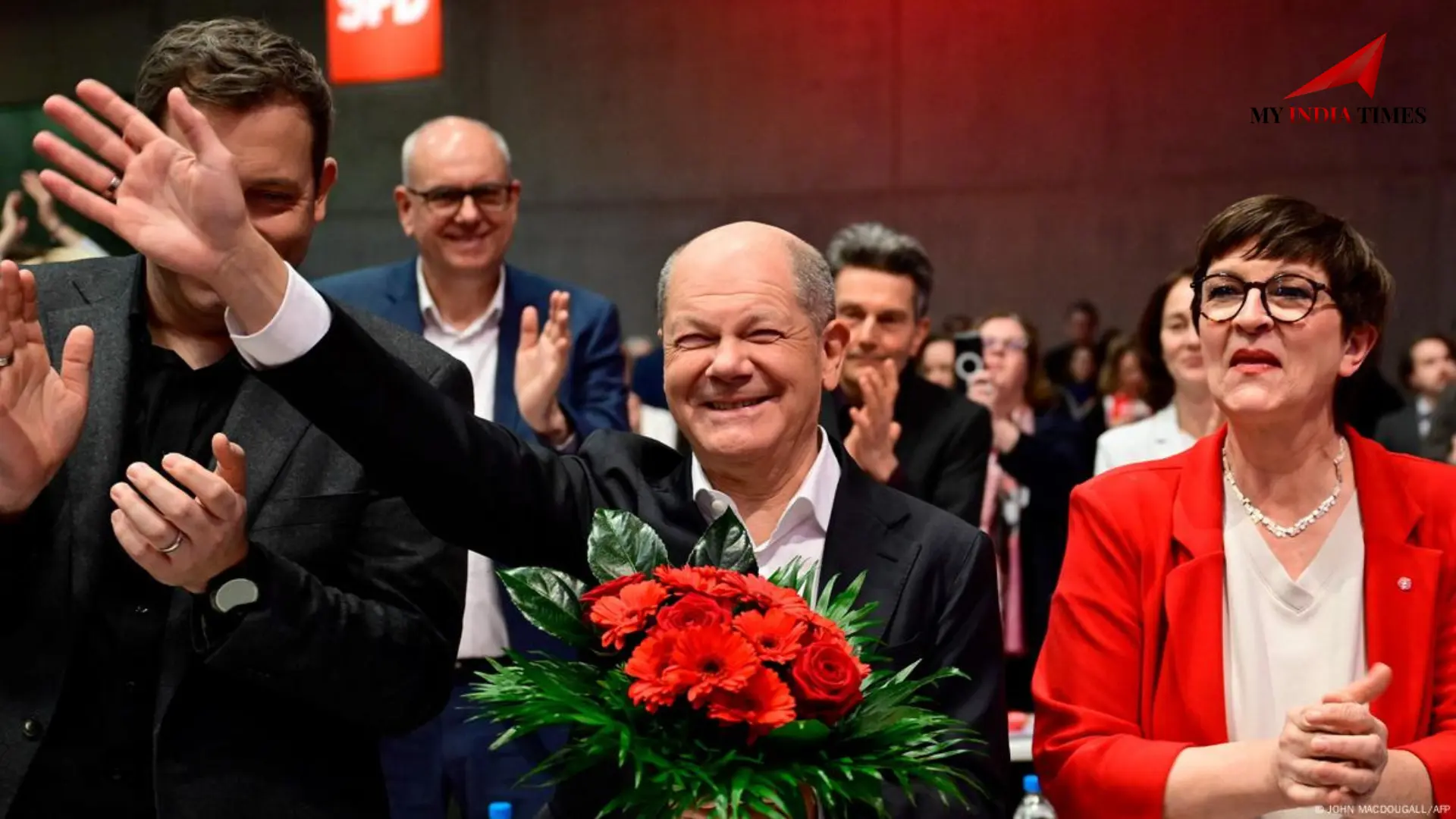
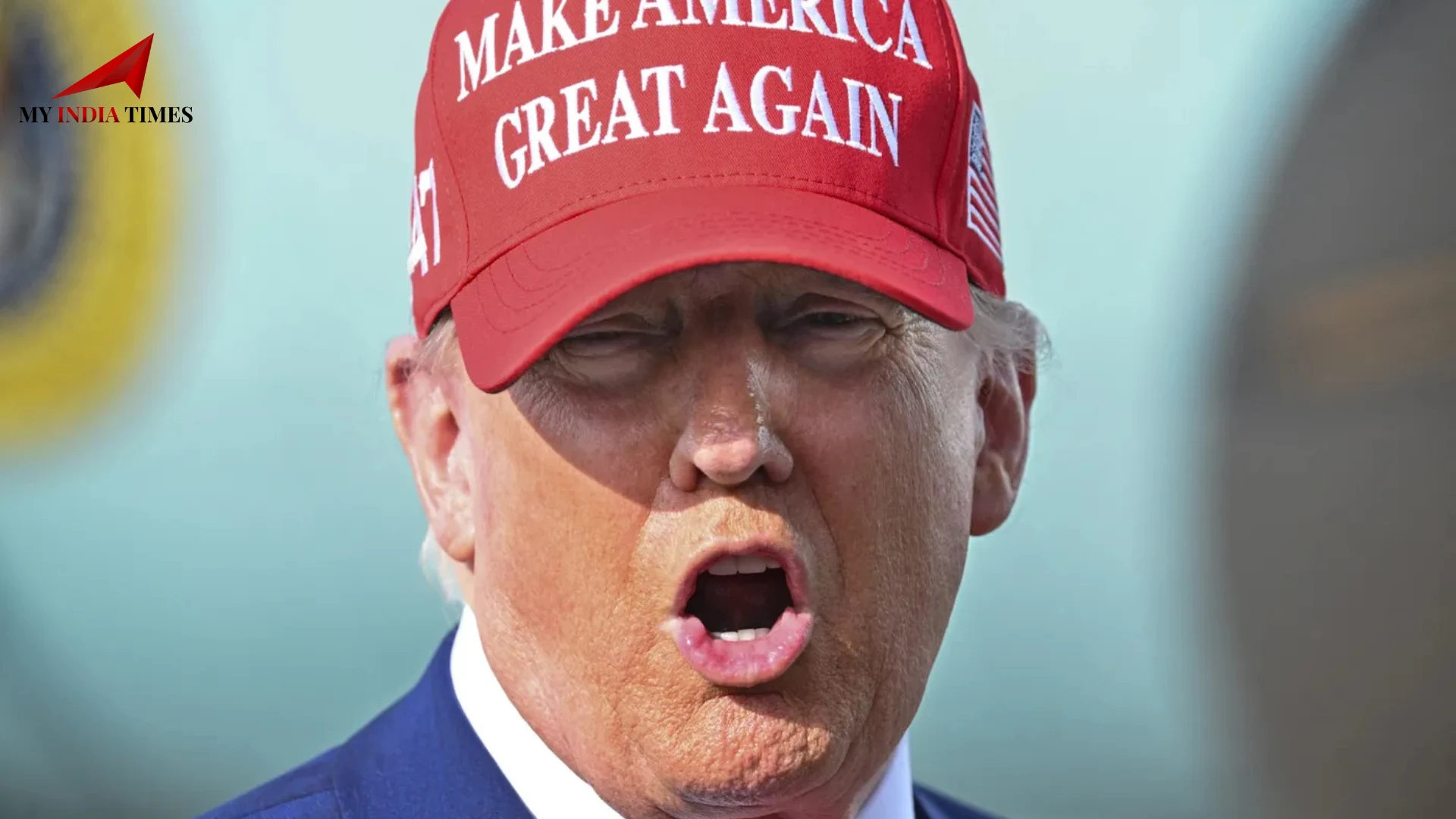
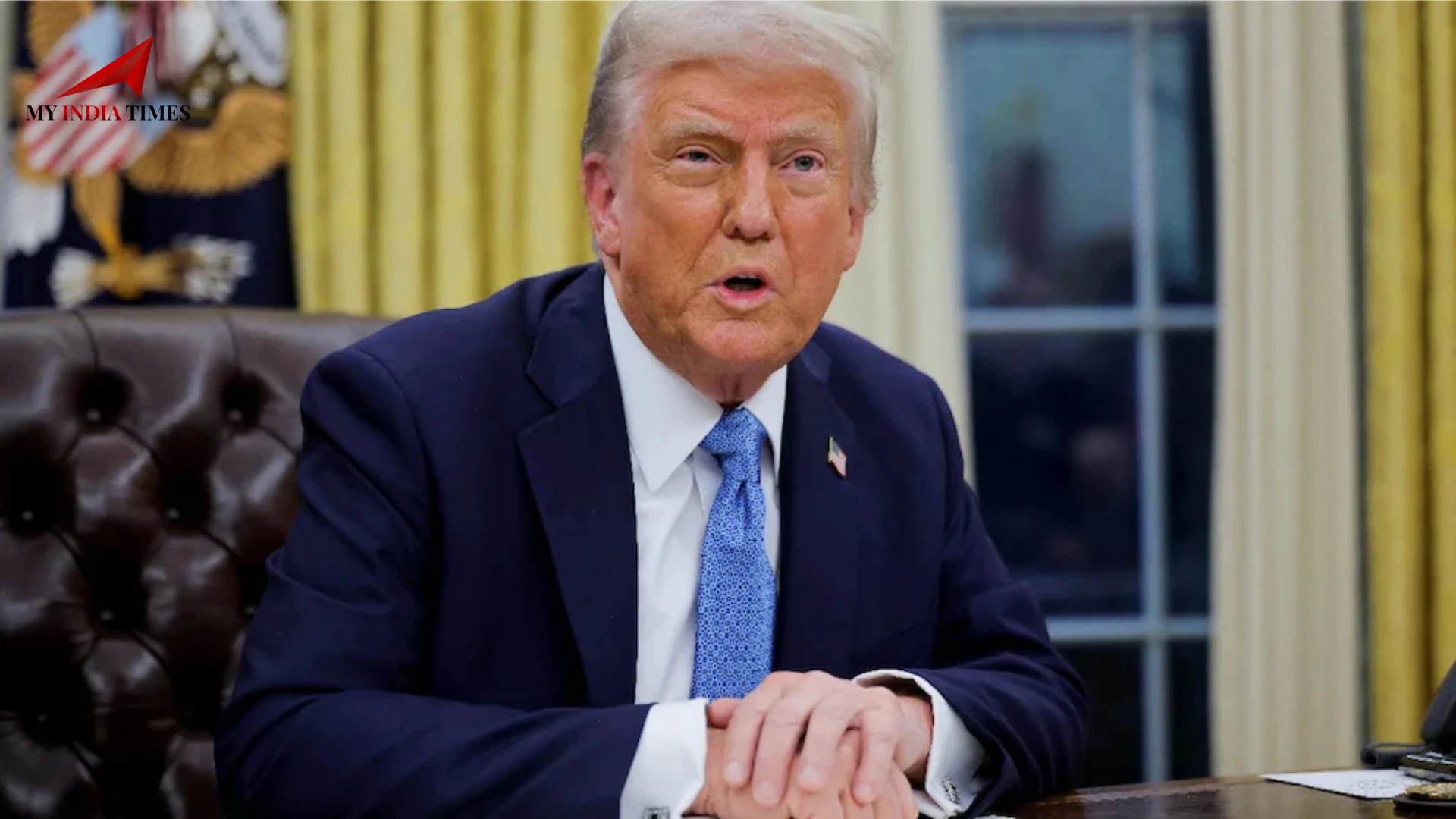
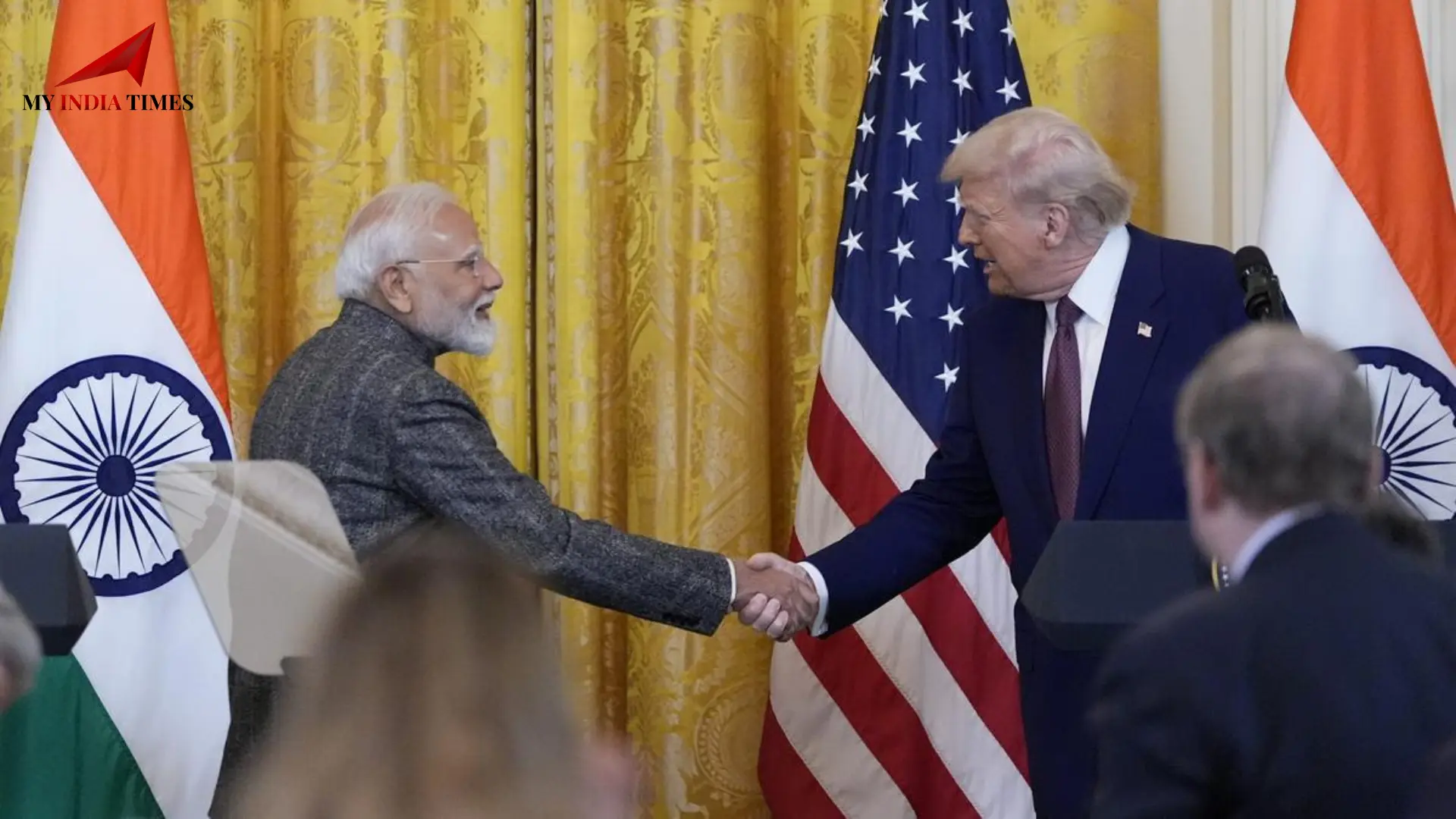

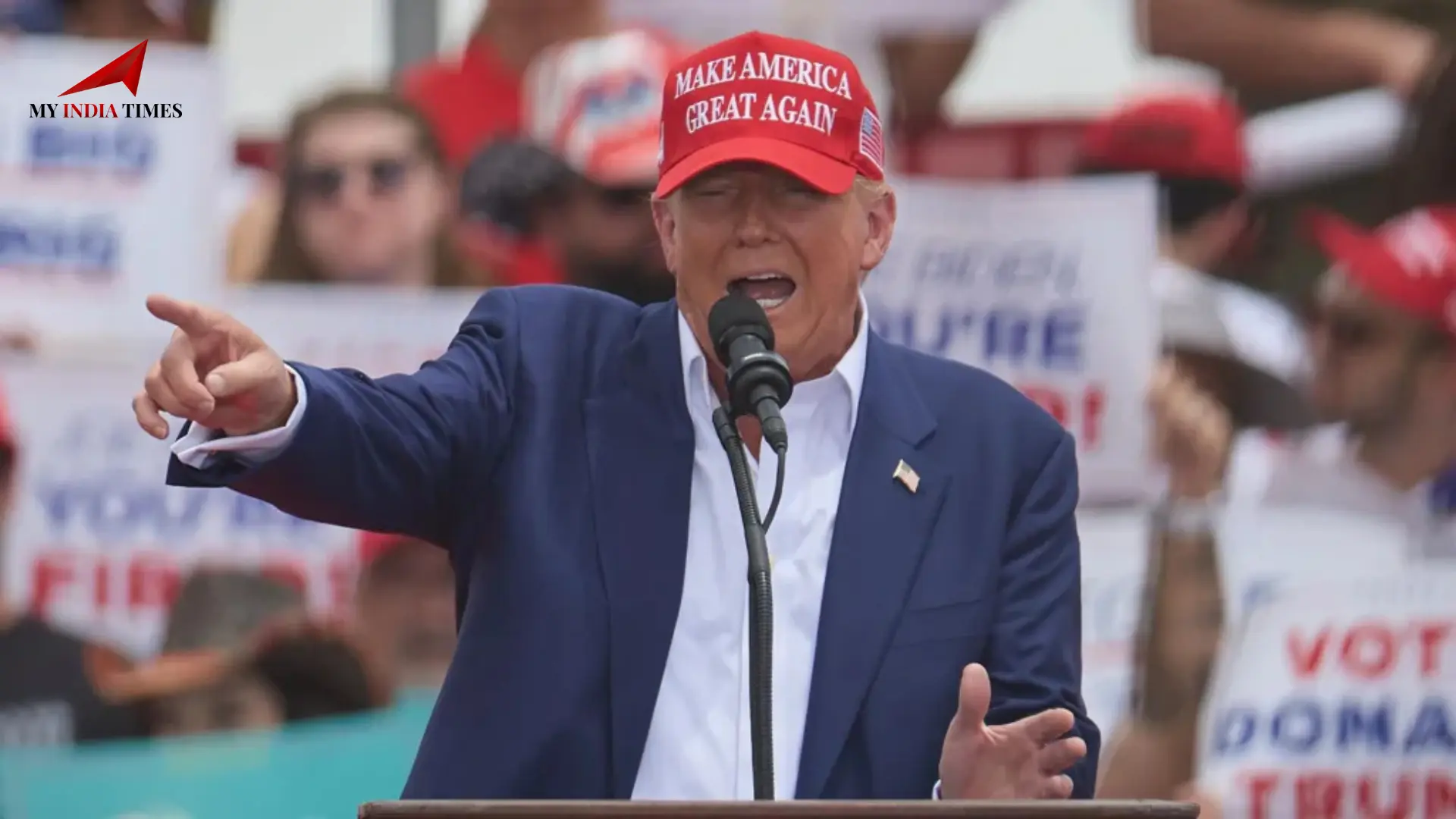
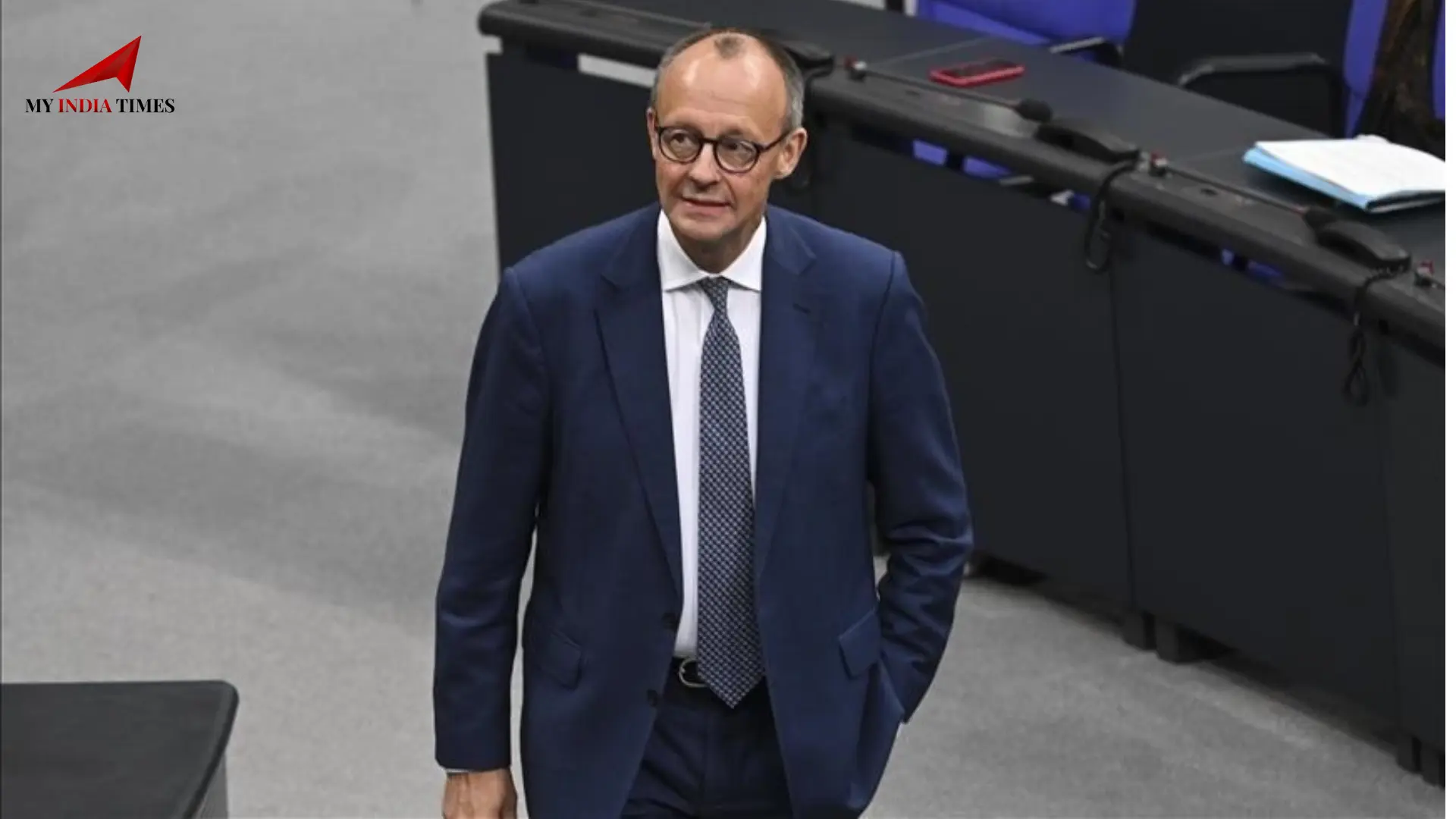
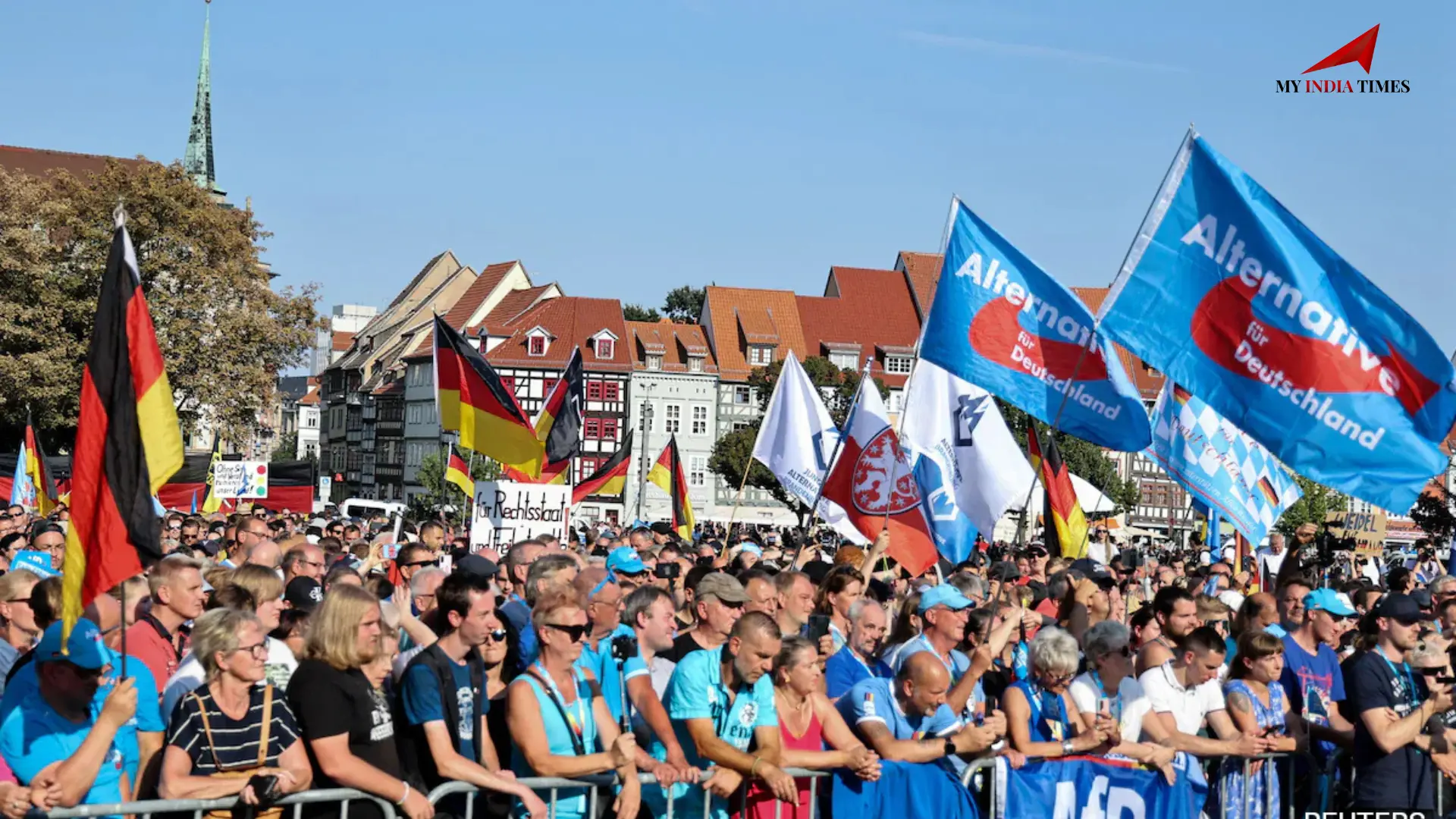
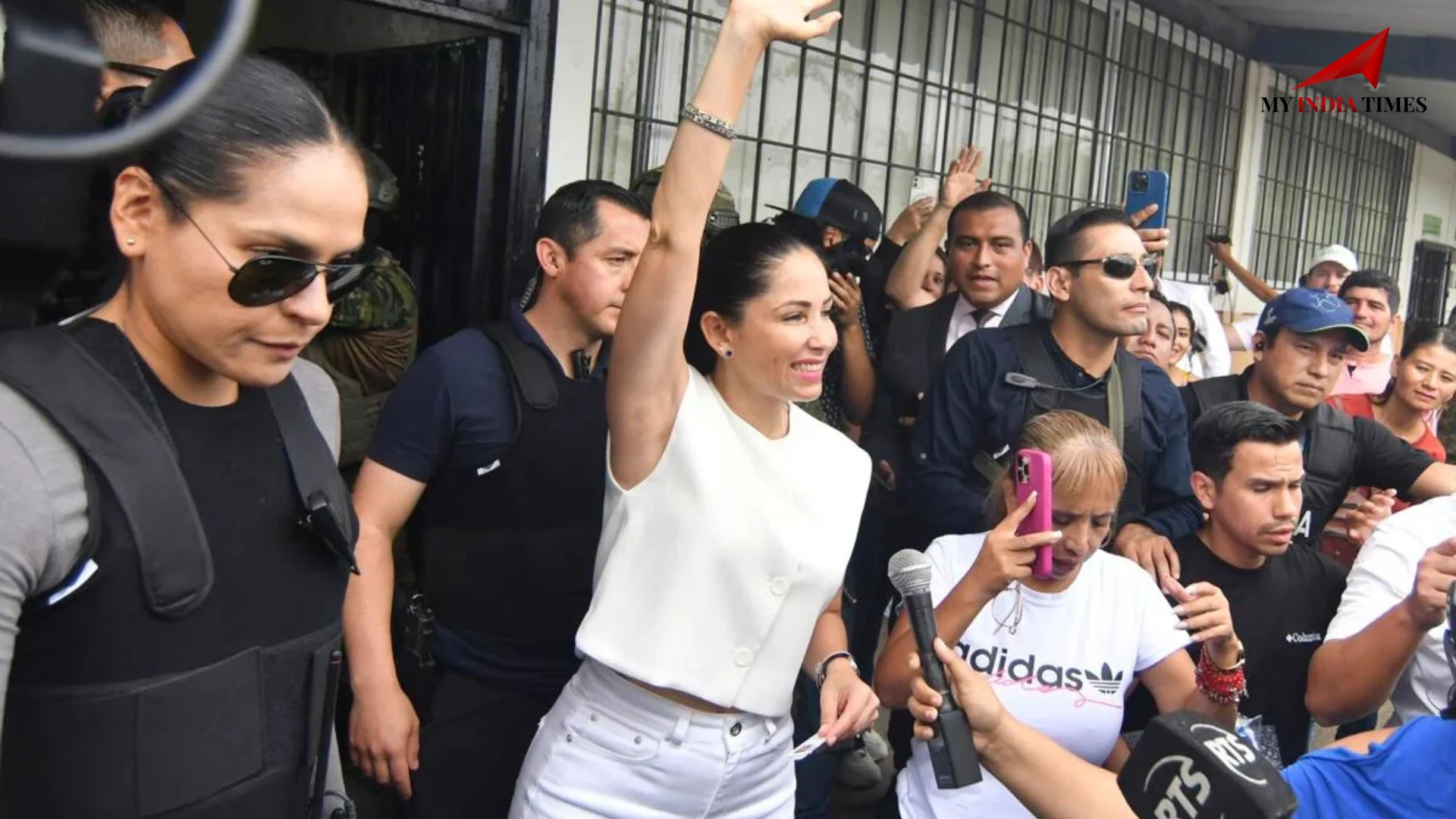
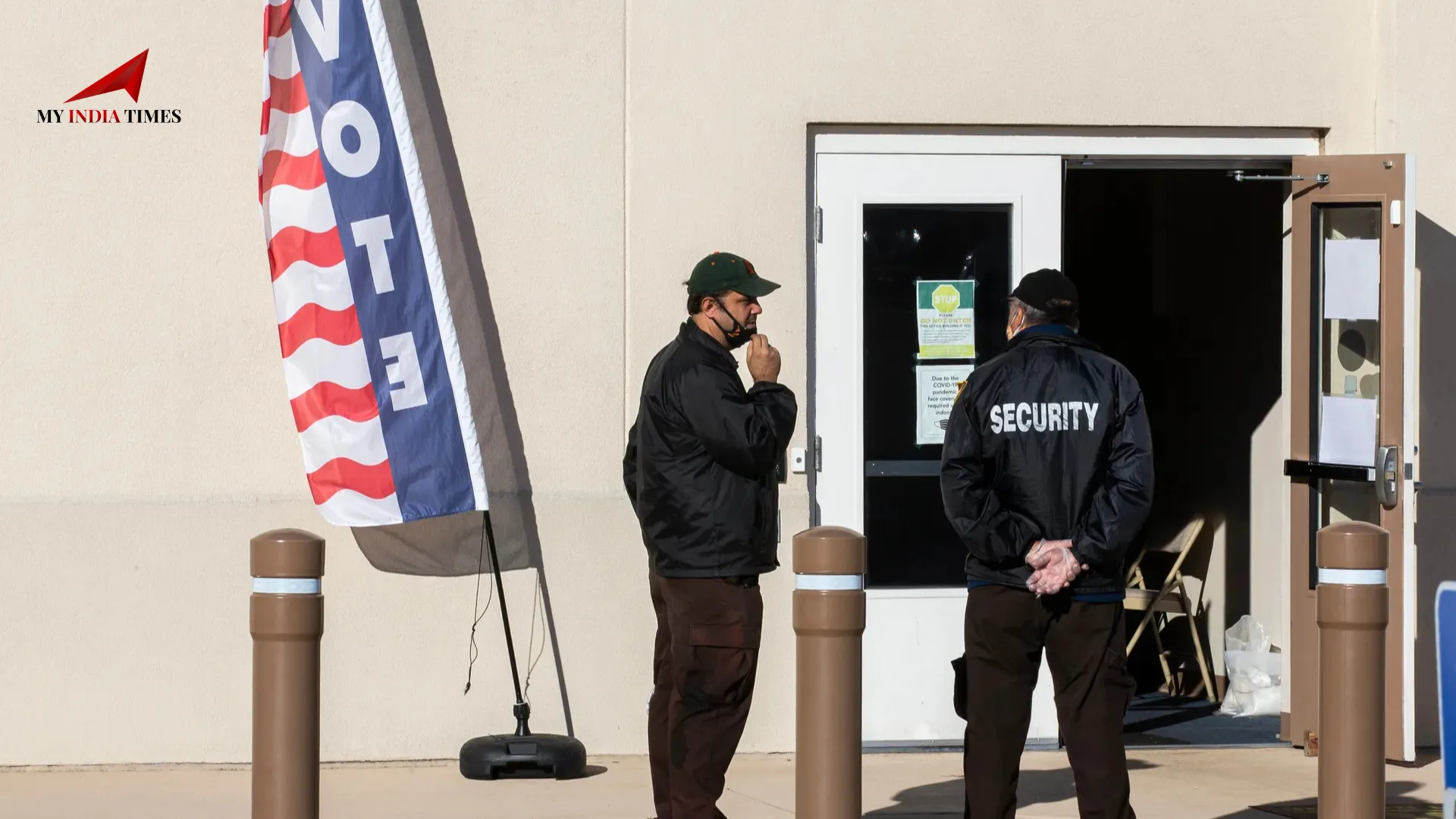
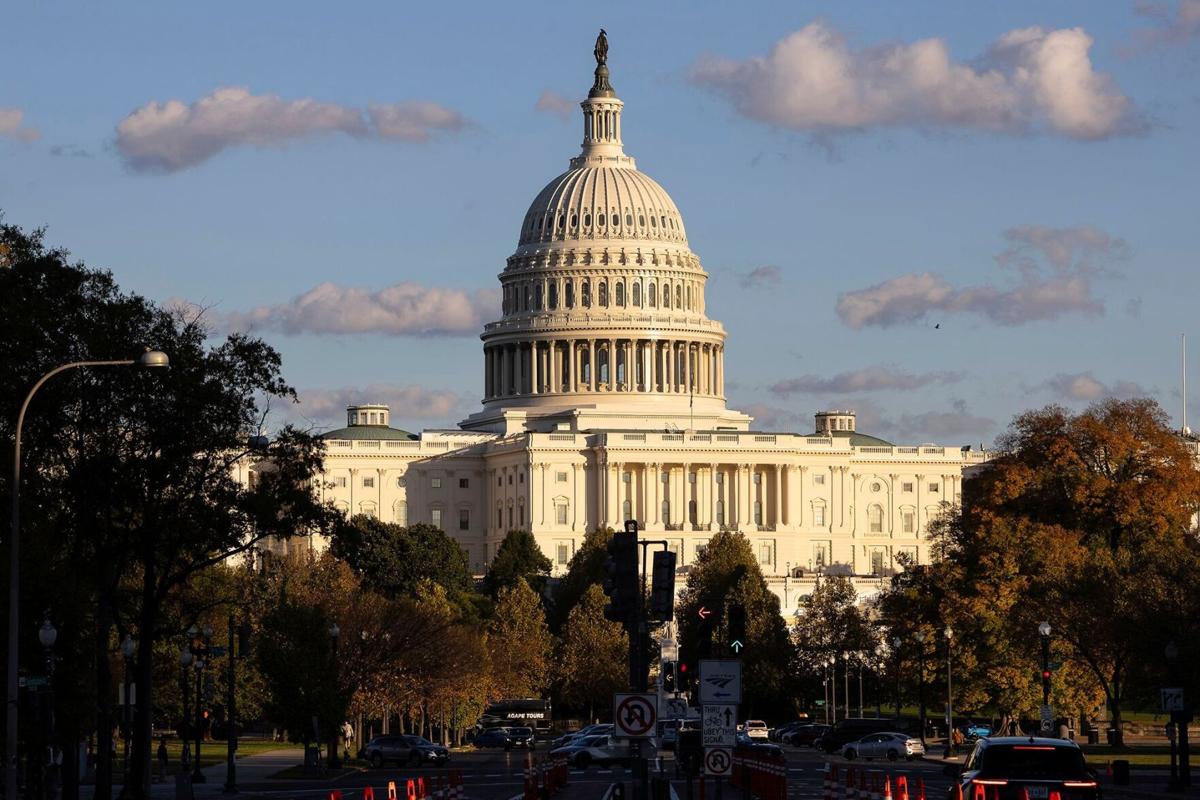

























































































.png)
 (1).png)























